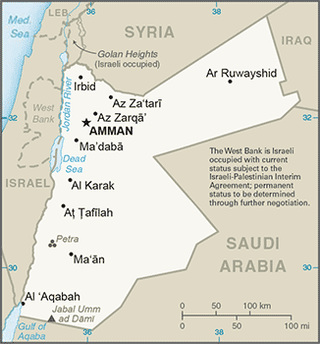University reform is a type of education reform applied to higher education.
Examples include:
An associate degree or associate's degree is an undergraduate degree awarded after a course of post-secondary study lasting two to three years. It is a level of academic qualification above a high school diploma and below a bachelor's degree.

The Bologna Process is a series of ministerial meetings and agreements between European countries to ensure comparability in the standards and quality of higher-education qualifications. The process has created the European Higher Education Area under the Lisbon Recognition Convention. It is named after the University of Bologna, where the Bologna declaration was signed by education ministers from 29 European countries in 1999. The process was opened to other countries in the European Cultural Convention of the Council of Europe, and government meetings have been held in Prague (2001), Berlin (2003), Bergen (2005), London (2007), Leuven (2009), Budapest-Vienna (2010), Bucharest (2012), Yerevan (2015), Paris (2018), and Rome (2020).
Education in Japan is managed by the Ministry of Education, Culture, Sports, Science and Technology (MEXT) of Japan. Education is compulsory at the elementary and lower secondary levels, for total of nine years.

Education in China is primarily managed by the state-run public education system, which falls under the Ministry of Education. All citizens must attend school for a minimum of nine years, known as nine-year compulsory education, which is funded by the government.

The Republic of Austria has a free and public school system, and nine years of education are mandatory. Schools offer a series of vocational-technical and university preparatory tracks involving one to four additional years of education beyond the minimum mandatory level. The legal basis for primary and secondary education in Austria is the School Act of 1962. The Federal Ministry of Education is responsible for funding and supervising primary, secondary, and, since 2000, also tertiary education. Primary and secondary education is administered on the state level by the authorities of the respective states.

The Congregation for Catholic Education (Institutes of Study) (Latin: Congregatio de Institutione Catholica (Studiorum Institutis)) was the pontifical congregation of the Roman Curia responsible for: universities, faculties, institutes and higher schools of study, either ecclesial or non-ecclesiastical dependent on ecclesial persons; and schools and educational institutes depending on ecclesiastical authorities.

Education in Bosnia and Herzegovina has a long history, the first classifiable higher-education institution having been established a school of Sufi philosophy by Gazi Husrev-beg in 1531, with numerous other religious schools following suit over time. In 1887, under de facto Austro-Hungarian Empire control, a Sharia Law School began a five-year program. In the 1940s the University of Sarajevo became the city's first secular higher education institute. In the 1950s post-bachelaurate graduate degrees became available. Severely damaged during the war, it was recently rebuilt in partnership with more than 40 other universities. There are various other institutions of higher education, including: University of Banja Luka, University of Mostar, University of Tuzla, University of Zenica, University of East Sarajevo, University Džemal Bijedić of Mostar, University of Bihać, American University in Bosnia and Herzegovina, etc.

The history of education in Japan dates back at least to the sixth century, when Chinese learning was introduced at the Yamato court. Foreign civilizations have often provided new ideas for the development of Japan's own culture.
Education in Armenia is held in particular esteem in Armenian culture. Education developed the fastest out of the social services, while health and welfare services attempted to maintain the basic state-planned structure of the Soviet era, following Armenia's independence in 1991. Today, Armenia is trying to implement a new vision for its higher education system while pursuing the goals of the European Higher Education Area. The Ministry of Education and Science oversees education in the country.

The Higher Education Commission is a statutory body formed by the Government of Pakistan which was established in 2002 under the Chairmanship of Atta-ur-Rahman. Its main functions are funding, overseeing, regulating and accrediting the higher education institutions in the country.

In the 21st century, the Government of Egypt has given greater priority to improving the education system. According to the Human Development Index (HDI), Egypt is ranked 97 in the HDI, and 9 in the lowest 10 HDI countries in the Middle East and Northern Africa, in 2014. With the help of the World Bank and other multilateral organizations Egypt aims to increase access in early childhood to care and educate the inclusion of Information and Communication Technology (ICT) at all levels of education, especially at the tertiary level. The government is responsible for offering free education at all levels. The current overall expenditure on education is about 12.6 percent as of 2007. Investment in education as a percentage of GDP rose to 4.8 in 2005 but then fell to 3.7 in 2007. The Ministry of Education is also tackling a number of issues: trying to move from a highly centralized system to offering more autonomy to individual institutions, thereby increasing accountability. The Human Rights Measurement Initiative finds that Egypt is achieving 65.5% of what should be possible for the right to education, at their level of income.
Graduate unemployment, or educated unemployment, is unemployment among people with an academic degree.

The education system of the Hashemite Kingdom of Jordan includes basic, secondary, and higher education and has dramatically evolved since the establishment of the state in the early 1900s. The role played by a good education system has been significant in the development of Jordan from a predominantly agrarian to an industrialized nation over time.

The A-level is a subject-based qualification conferred as part of the General Certificate of Education, as well as a school leaving qualification offered by the educational bodies in the United Kingdom and the educational authorities of British Crown dependencies to students completing secondary or pre-university education. They were introduced in England and Wales in 1951 to replace the Higher School Certificate. The A-level permits students to have potential access to a chosen university they applied to with UCAS points. They could be accepted into it should they meet the requirements of the university.
In 2023, the university enrollment rate in China was 60.2% according to the Ministry of Education, representing 47 million mainland Chinese students enrolled in 4-year university and college degree programs in some 3,074 Chinese tertiary institutions. Entry into universities is intended to be meritocratic, depending only on the result of the Gaokao entrance examination. Entry is not influenced or determined by sporting activities, extracurricular programs, donations, or alumni parents and siblings. Chinese education authorities have emphasized meritocracy as a social equalizer. Usually, 12 years of formal education is the one prerequisite for entry into an undergraduate degree.

Education in Azerbaijan is regulated by the Ministry of Science and Education of Azerbaijan.
Since gaining independence from France in 1956, the government of Tunisia has focused on developing an education system which produces a solid human capital base that could respond to the changing needs of a developing nation. Sustained structural reform efforts since the early 1990s, prudent macroeconomic policies, and deeper trade integration in the global economy have created an enabling environment for growth. This environment has been conducive to attain achievements in the education sector which placed Tunisia ahead of countries with similar income levels, and in a good position to achieve MDGs. According to the HDI 2007, Tunisia is ranked 90 out of 182 countries and is ranked 4th in MENA region just below Israel, Lebanon, and Jordan. Education is the number one priority of the government of Tunisia, with more than 20 percent of government’s budget allocated for education in 2005/06. As of 2006 the public education expenditure as a percentage of GDP stood at 7 percent.
Rashtriya Uchchattar Shiksha Abhiyan (RUSA) is a holistic scheme of development for higher education in India initiated in 2013 by the Ministry of Education, Government of India. The centrally sponsored scheme aims at providing strategic funding to higher educational institutions throughout the country. Funding is provided by the central ministry through the state governments and union territories (UT), which in coordination with the central Project Appraisal Board will monitor the academic, administrative and financial advancements taken under the scheme. A total of 316 state public universities and 13,024 colleges will be covered under it.

Campus Reform is an American conservative news website focused on higher education. It is operated by the Leadership Institute. It uses students as reporters. The news site is known for conservative journalism, where it reports incidents of liberal bias and restrictions on free speech on American college campuses. The online publication maintains running list of "victories"—ranging from college policy changes to firings—on a dry-erase board at the website's Arlington, Virginia, headquarters inside the Leadership Institute.